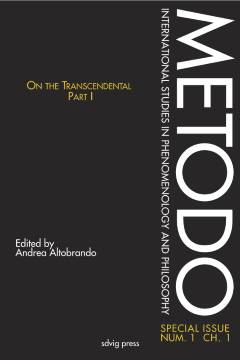En-deçà du transcendental
Les conditions pré-phénoménales de la vie transcendentale
pp. 81-102
Abstract
To understand the coherence of transcendental thinking, the very first step must be to recall the original meaning of the word ‘transcendental’ in modern philosophical language, as it emerged in Kant’s critical thought and terminology, from its remote mediaeval understanding. It is then shown how much Husserl’s new phenomenological conception of the due method of the theory of knowledge led to a thoroughly new approach of subjectivity, away from Kant’s merely functionalconcept of transcendentality. This finally leads to the decisive question: What is the ultimate original condition of each transcendental living experience, as a primordial noetic act ? On that way appears the fundamental role played by the deepest stratum of affectivity, in Michel Henry’s sense. But Henry’s exposition of the effectiveness and power of transcendental affectivity, described as the process of life and characterized as “self-affection”, soon appears as overdetermining the phenomenon itself, which results in a contradiction. The author shows that, actually, the originary springing up of ‘transcendental’ life testifies to its finiteness, and thus points to its threshold, the inner subjective limit of phenomenality. So the way is open to metaphenomenology.
Publication details
Published in:
Altobrando Andrea (2015) On the transcendental. Metodo Special Issue 1.1.
Pages: 81-102
Full citation:
Lavigne Jean-François (2015) „En-deçà du transcendental: Les conditions pré-phénoménales de la vie transcendentale“. Metodo 1.1, 81–102.


